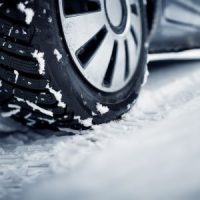The Importance of Adjusting Your Driving in Bad Weather

Georgia is known for its unpredictable weather, especially during the winter months, when sudden cold snaps and storms make icy roads a very real possibility. While there are steps that all drivers can take to help avoid being the cause of a bad weather accident, there is no way to guarantee that other drivers will do the same. In these cases, injured parties may need to seek compensation from the at-fault drivers who failed to adjust their driving habits despite the bad weather conditions.
Preparing for Slippery Road Surfaces
A lot of inclement weather is accompanied by slippery road surfaces, especially in the winter months. To help reduce your chances of being the cause of a bad weather accident, be sure to prepare for these slippery conditions by:
- Lowering your speed, which will help you maintain better control of your vehicle, reducing your chances of skidding out of control;
- Maintaining a safe following distance of at least three seconds, which will give you more time to react if the car in front of you stops suddenly or slides out of control; and
- Avoiding distractions, which are dangerous even when conditions are perfect for driving and are doubly so when your vision is obscured or the roads are slippery.
Of course, it’s also important to avoid making any sudden movements, like a sharp turn or abrupt braking, both of which can cause a driver to lose control. Instead, drivers should try to make more gradual changes in direction and speed.
Addressing Visibility
Reduced visibility is one of the most dangerous aspects of driving in bad weather, as you simply can’t always avoid colliding with something that you can’t see (except by luck). To help combat poor visibility during poor weather conditions, be sure to use your headlights, which will not only help you see, but will help other drivers see you. It’s also important to use the correct lights, with fog lights often being a better choice, as high beams can actually scatter the light. Windshield wipers can also play a key role in helping improve your visibility during bad weather. This, however, is only true when those wipers aren’t overly worn and have been properly maintained. To ensure that you don’t get stuck in a storm with faulty wipers, be sure to check yours regularly, especially at the onset of winter.
Stocking Your Vehicle
It’s not always possible to avoid an accident caused by bad weather. For this reason, drivers should be sure to stock their vehicles with essentials in the event of an emergency. This should include a roadside kit made up of:
- Jumper cables;
- A tool kit
- A flashlight;
- Reflective triangles;
- A First Aid kit;
- Nonperishable, high-energy foods and drinking water;
- A fire extinguisher;
- Blankets;
- A charger for your cell phone;
- Duct tape;
- A rain poncho and warm clothing.
Of course, be sure that your spare tire is properly inflated and that you have both a wheel wrench and a tripod jack for changing a tire. Being prepared by having these items on hand can make a life-saving difference.
Reach Out to Our Legal Team Today
Bad weather accidents are surprisingly common in Georgia. For help holding a driver accountable for his or her failure to adjust to the conditions, please call the Marietta bad weather car accident lawyers at Shiver Hamilton Campbell for help and advice.
Sources:
nhtsa.gov/road-safety/driving-in-severe-weather
highwaypatrol.utah.gov/winter-driving/driving-tips/


